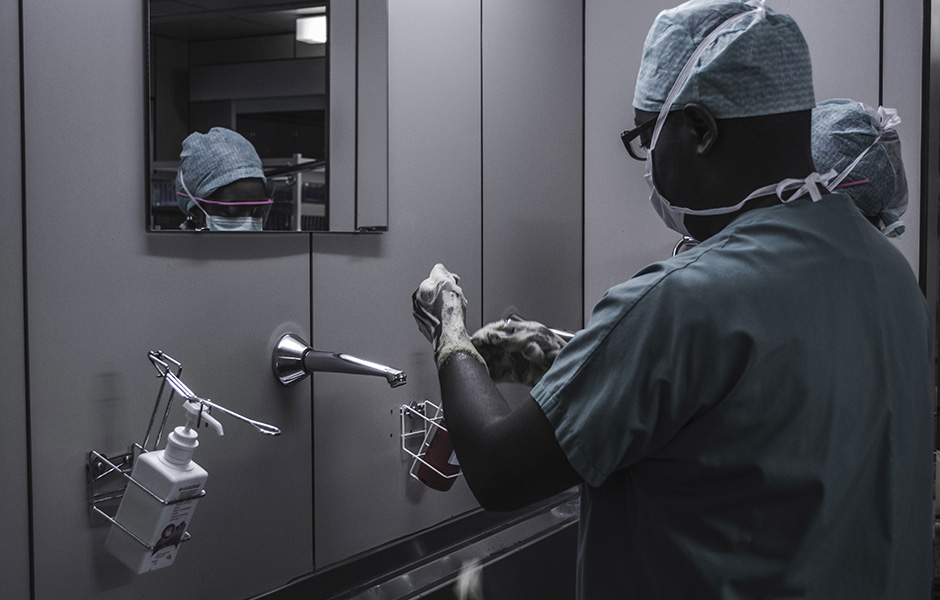A team of researchers from CINTESIS – Center for Health Technology and Services Research will test a new strategy for disinfecting the surfaces of hospitals that are in contact with patients, in order to reduce the risk of infections, especially by pathogenic microorganisms resistant to drugs.
Under the coordination of Luís Cobrado and Acácio Rodrigues, the scientists will implement an automatic vaporization system for hydrogen peroxide (H2O2) for decontamination of surfaces in a critical patient unit, namely the Burn Unit of the Hospital Center of São João, in Porto.
This 36-month prospective study, funded by Portugal 2020 with approximately 212,000 Euros, will investigate the “real microbiological and clinical impact of the routine implementation of surface disinfection based on active biocides against multi-resistant pathogenic microorganisms, the rates of infection associated with health care”.
Previously, the team aims to “determine the antimicrobial effect of H2O2 vapor combined with silver cations on different species of fungi and bacteria susceptible and resistant to conventional antimicrobials with relevance in critical patients.”
Antimicrobial resistance is a growing problem in Portugal and in the world, with special emphasis on microorganisms responsible for health care associated infections. Studies show that 60% of the high contact surfaces close to the patient remain contaminated after manual sanitization due to the use of incorrect concentrations of disinfectant and / or insufficient contact time. In rooms previously occupied by infected or colonized patients, the risk of infection is 73%.
Improved hospital disinfection is expected to significantly contribute to minimizing colonization and infection among burn patients and to reducing antimicrobial drug delivery, antimicrobial resistance, and cost-related care.
Besides Luís Cobrado and Acácio Rodrigues, the researchers Cidália Pina Vaz, Elisabete Ricardo, Ana Isabel Silva Dias, Isabel Miranda, Maria Manuel da Silva Azevedo and Luís Filipe Azevedo, are also members of team of the H2O2/Ag+ impact in HAI project.

